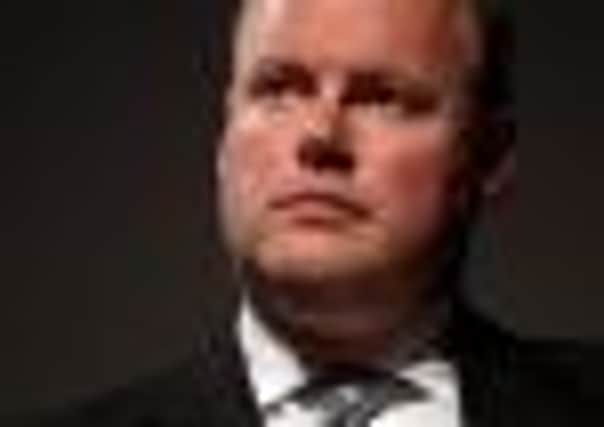Terry Murden: Criticism of boardroom pay is no passing fad


Is this the Opposition ramping up the pressure on the coalition and trying to capitalise on its “Hester victory”?
Well, no, because these words were penned in March 2001 when the trade and industry secretary at the time, Stephen Byers, jumped on the boardroom pay bandwagon and decided enough was enough.
Advertisement
Hide AdAdvertisement
Hide AdByers promised a raft of changes in the relationship between shareholders and directors and to the composition of remuneration committees.
There have been changes, some tightening up. But 11 years and two general elections later the politicians are still grappling with the problem, as we’ve seen this weekend. And still the pay gap widens and the debate goes on, seemingly without end. Public outrage over salaries first emerged over those who ran the public utilities at the time of the privatisation programme in the 1980s and 90s. The original “fat cat” was Cedric Brown, chief executive of British Gas, who was vilified after his pay rocketed.
But the cause of all this indignation varies from being in the right place at the right time (privatisation), reward-for-failure (payment after being sacked), or simply because someone has been paid what is deemed an indecent sum (while their employees get by on a pittance).
In 2000, trade unions and shareholders tried to block a £10 million bonus awarded to Vodafone chief executive Chris Gent, despite the fact that he’d led the takeover of German mobile phone group Mannesmann. It was one of the few sizeable British acquisitions of a German firm and helped establish Vodafone as Britain’s biggest company.
Other targets included sacked British Airways boss Bob Ayling, who got a £1m pay-off, and Marks & Spencer chief executive Luc Vandevelde who received a £2m “golden hello”, effectively a payment for accepting a job. In recent years shareholders have become more rebellious and some pay awards have been voted down. But they’re the exception to the rule.
And what has been the response from the companies themselves? That they must be able to pay top rates to attract the top talent. Plus ça change, plus c’est la même chose?
To its credit the current government has introduced some limitations on bankers’ pay, including the amount payable in cash and the requirement to meet regulatory guidelines on capital before approving payments.
But admitting that it is flying in the face of market pressure would be political suicide. No-one in the Cabinet dares admit that they really do have to pay the “going rate” or risk losing those at the top. Stephen Hester could indeed walk away from RBS (and some of his key people have already done so) and into a top job elsewhere. Of course, someone else would step up to the plate. But getting the right person would not be easy.
Advertisement
Hide AdAdvertisement
Hide AdIt’s been said that, because RBS is majority-owned by the taxpayer, the chief executive should be regarded as a civil servant and paid accordingly. Hasn’t Britain moved on from that sort of statist talk and embraced risk?
If we claim to be an enterprise nation in an international market then we have to play by the same rules as our competitors. The fact is that the rules are shoddy, badly policed and therefore open to abuse. That’s not the fault of David Cameron, nor Penny Hughes, the chairman of the RBS remuneration committee.
But short of co-ordinated international action to tame boardroom pay, there is only so much that can be done, as I’m sure Stephen Byers discovered.
Secrets of IndigoVision battle revealed
THE battle for Edinburgh technology company IndigoVision was more than a local affair, it was a bitter dispute between key shareholders and directors.
As we reveal today, the price that the board refused to put to the shareholders in the final round of talks was near 400p, somewhat north of the current price, and despite recent rises.
Shareholders condemned Scottish Equity Partners and ousted chief executive Oliver Vellacott for trying to buy the company on the cheap. But only those believing the shares will return to pre-profits warning levels of 600p may feel cheated.